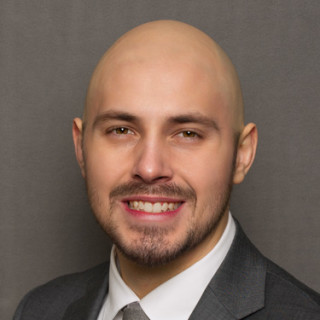I love many things in life — music, exercising, movies, etc. Two of my favorites, however, are football and kids. As a former football player, I believe the football locker room is the quintessential melting pot environment for fostering individual maturity and team camaraderie while building lifelong friendships between persons of all cultures and backgrounds. The memories that come from playing this game and building relationships with teammates and coaches carry throughout a player’s lifetime. The longer I am removed from my playing days, the more I appreciate and cherish those memories.
Regarding my love for kids, the following quote by Dr. Stuart Shanker comes to mind: There is no such thing as a bad kid. They have room to grow, develop, mature, and be positively influenced by others, including doctors. This is not to say that kids cannot be challenging to cooperate with sometimes, but how we interact with them while they are still kids plays a large role in what kind of adults they will be when they grow older.
Sadly, not all kids reach adulthood, and one of the leading causes of death in children is cancer. According to the American Cancer Society, it is expected that about 1,040 children under the age of 15 in the U.S. will die from cancer in 2023. According to a 2012 survey of 1,000 U.S. adults 18 years of age and older, the two greatest obstacles in curing pediatric cancer are lack of research funds (60% of respondents) and lack of awareness (42%). Since 2012, September has been recognized as Childhood Cancer Awareness Month “by childhood cancer organizations around the world” per the American Childhood Cancer Organization, and this initiative is symbolized by the gold ribbon. To help increase both research funds and awareness during this initiative, football teams at all levels (i.e., high school, college, professional) have engaged in dedicated game-based efforts annually (e.g., “Pediatric Cancer Awareness Game”, “First and Gold” campaign, “Gold Together”, National Football League’s “Crucial Catch”) to steer up community support nationwide.
If you are a football fan like me and grew up in the Midwest, you probably follow a program in the Big Ten conference. Although I was never really a University of Iowa Hawkeyes fan growing up, there is one football tradition that – whether you are a football fan or not – epitomizes how this sport is more than just a game. The University of Iowa is located in Iowa City, Iowa and the university’s children's hospital, the Stead Family Children’s Hospital, towers over Kinnick Stadium. After the end of the first quarter of football Saturday home games in Iowa City, everyone in attendance at Kinnick Stadium – fans, players, coaches, referees, supporting staff, etc., – will turn and wave to the pediatric patients and their family members at Stead Family Children’s Hospital. Since 2017, this “genuine act of kindness” known as the “Hawkeye Wave”, has spread profound, life-changing hope and inspiration for many pediatric patients and families.
West Lafayette, Indiana is also home to Ross-Ade Stadium and the Purdue University Boilermakers. One of the most well-known "super-fans" of Purdue football was Tyler Trent who, at the age of 15, was diagnosed with osteosarcoma and lost his battle with cancer in 2019 at the age of 20. Not only was he a student at Purdue, but he was a prolific writer and humanitarian, and raised hundreds of thousands of dollars for pediatric cancer research (even while in hospice). His presence was felt throughout the university and football team and, in 2018, inspired the upset win over the college football powerhouse, the Ohio State University Buckeyes. Today, the Tyler Trent Foundation continues to carry Tyler’s mission of supporting pediatric cancer research and awareness.
Having transitioned from being a football player to now a pathology resident, I am beginning to realize the importance of appropriate diagnostics, lab testing, and histopathologic investigation in the care plan for pediatric diseases, especially cancer. According to a 2020 study by Lubega et al., “[a]ccurate real-time pathology for pediatric cancers improves survival.” Although pediatric cancers are relatively uncommon, their molecular diversity and behavioral heterogeneity have resulted in the recent “development of the first World Health Organization (WHO) Classification of Pediatric Tumors” per Pfister et al. (2022). Because of continued sports-related awareness efforts, millions of dollars worth of funding have been raised toward pediatric cancer research grants. This has provided clinicians – including pathologists – the means to understand better, characterize, and treat children with these life-threatening conditions.
Following this sport continues to bring meaning and fulfillment to my life. About 7% of high school football players continue their playing days in college, and I was blessed to be one of them. College football provided me the opportunity to receive an exceptional college education and sparked my pursuit of a career in medicine after my playing days were complete. Now in my first year of pathology residency, football season still makes me reminiscent of the memories I have from playing the sport I love. Many patients and even other physicians may not be aware of the role pathologists have in pediatric conditions; however, Nezelof et al. (2010) highlighted some of our contributions “to the body of knowledge regarding human disease.”
As I continue to follow football, learn how to practice pathology, and look forward to my future as a father someday, the topic of pediatric cancer awareness now hits me differently. I remember playing on those football Saturdays that were dedicated to raising pediatric cancer awareness; now, I am learning how to provide care for pediatric cancer patients and hope to do so for years to come. Football really is more than just a game.
Casey Schukow, DO, is a first-year pathology resident at Corewell Health’s Beaumont Hospital in Royal Oak, Michigan. Dr. Schukow can be followed on social media through his KiKo page here: https://kikoxp.com/casey_schukow3. Dr. Schukow is an ambassador for KiKo (Knowledge In Knowledge Out) but he does not receive financial compensation for this position.
Image by wizh.art / Shutterstock







